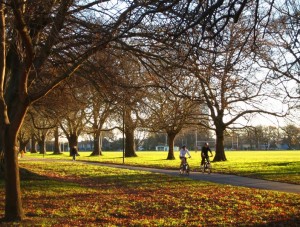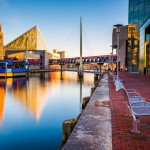A Dark Day for New Zealand
Posted on February 21, 2015 by Robert Ringer
Today, February 22 in New Zealand (February 21 in the United States), is a day of reflection for my family. On this date in 2011, Christchurch, New Zealand was hit by a 6.3 magnitude earthquake that destroyed dozens of major buildings, including a number of treasured landmarks. The reason the effects of the quake were so devastating was because it was only about three miles deep and the epicenter was just six miles southeast of downtown Christchurch.
The February 22 earthquake lasted only ten seconds, but it was so powerful that it immediately transformed Christchurch into a post-World War II Berlin look-alike. Even though it was a terrible tragedy for the 185 people who were killed (as well as for their loved ones), it was miraculous that thousands more did not die.
My family had left New Zealand fifteen years earlier, in 1996, but it has always remained in our hearts and minds. The thought of charming, peaceful Christchurch lying in ruins is unfathomable to us. In particular, it is difficult to digest the fact that two buildings that played such major roles in our lives were damaged so badly that they had to be demolished following the quake.
One was the 14-story Radio Network House building at 155 Worcester Street. My office occupied the entire thirteenth floor, and, as you can imagine, I have often wondered what it would have been like had the quake occurred years earlier while we were still living Down Under.
I often picture myself sitting at my desk in Christchurch, gazing out over the city and feeling as though I were in a dream world. But today, the Internet harshly reminds me of just how quickly and dramatically a dream world can turn into a nightmare: Radio Network Building implosion
The other building to which we will always be connected was the Heatherlea Apartments tower, where we lived on the fourth floor. It was a magnificent structure, built in 1987, just across the street from beautiful Hagley Park.
 One of the many luxurious features of the building was a fabulous indoor swimming pool surrounded by floor-to-ceiling windows on three sides. I recall watching my son taking a swimming lesson in the pool one day when a small tremor shook the building.
One of the many luxurious features of the building was a fabulous indoor swimming pool surrounded by floor-to-ceiling windows on three sides. I recall watching my son taking a swimming lesson in the pool one day when a small tremor shook the building.
Anyone who lives in earthquake country knows just how ominous those always unexpected tremors can be, and this one was especially unsettling because we were surrounded by glass. I recall wondering what would happen to those glass walls if a really big quake ever hit Christchurch. Again, today’s Internet provides the answer: Heatherlea implosion
So today, as with every year when February 22 rolls around, I can’t help but thinking about how narrowly, in geological terms, my family missed being in the middle of a natural disaster of catastrophe proportions. I am still not able to process the reality that both my office building and home were totally destroyed.
On a broader scale, the anniversary of the Christchurch earthquake — and how easily my family could have been seriously injured or killed in it — causes me to reflect on two phenomena I have so often written and spoken about: (1) how rapidly things can change and (2) how often luck (both good and bad) plays a major role in how people’s lives turn out.
As new generations make their appearance, they quite understandably assume that the world they live in is pretty much the way it has always been — and the way it always will be. What reason would they have to believe otherwise? After all, history books read like fiction to a young mind.
The popular term for this frozen-in-time tendency is “normalcy bias.” And what is most remarkable about normalcy bias is that even a majority of those who have already lived through myriad life-changing and world-changing events still tend to assume that no such events are on the horizon.
Whether it’s 9/11, getting fired from a well-paying job, the death of a loved one, a painful divorce, or one’s city being destroyed by a tornado, hurricane, or flood, the human mind has difficulty thinking about the possibility of such events in advance. Which is probably a good thing. It’s simply not possible, nor would it be advisable, to live one’s life in anticipation of the next life-changing event.
Nevertheless, I do believe it’s healthy to be consciously aware, at all times, of the fact that change is never far removed from our lives. No matter how well things may be going for us at any given time, humility and appreciation are always in order. Think of them as good luck charms.
Speaking of luck, in addition to my good fortune with regard to the 2011 Christchurch earthquake, I have been ridiculously lucky in surviving at least a dozen other situations where imminent disaster was at hand. While many may eschew the idea that random events, both good and bad, occur, the fact is that they do. For lack of a better term, let’s just refer to them as the inevitabilities of life. I have absolutely no explanation for them.
That said, it seems clear to me that bad luck was the culprit for the 185 people who were in the wrong place at the wrong time when the 2011 Christchurch earthquake unleashed hell on the residents of that city. And on a much larger scale, the same can be said of those who have died in cyclones, tsunamis, and endless other natural disasters throughout history.
As they say, every day above ground is a good day, and I am especially cognizant of that fact on this day, February 22, knowing how easily my family and I could have been trapped in this nightmare: 2011 Christchurch earthquake
To all Kiwis reading this piece, please know that my thoughts are with you on this very difficult today.










